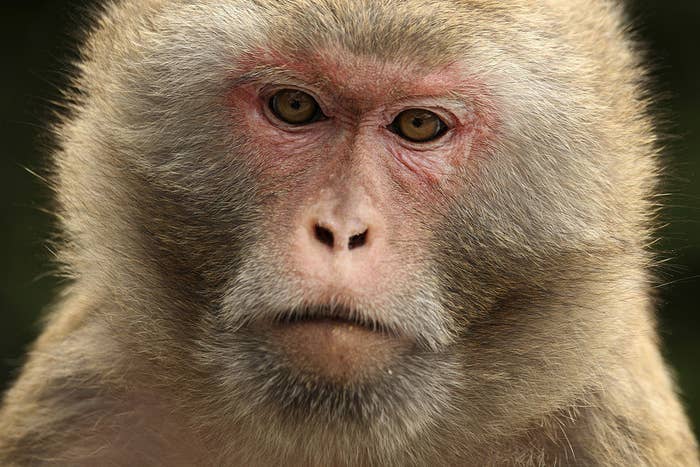
Zika gives its victims long-term immunity to the virus, according to a long-awaited study of infected monkeys published on Tuesday.
That’s somewhat reassuring news amid an outbreak that has spread to 60 nations and territories. But the monkey experiment also brings bad news, finding that Zika infections persist for months longer in pregnant animals than others. This work seems to confirm the case of a Finnish woman who acquired Zika while pregnant in Guatemala and whose infection lasted 10 weeks, instead of the typical 10 days.
A dozen countries have reported pregnant women infected with Zika who gave birth to infants with microcephaly, the shrunken skull and brain syndrome. The biggest microcephaly outbreak by far started in 2015 in Brazil and has now grown to more than 1,500 confirmed cases.
“A sustained [Zika] infection during pregnancy is completely different from a normal infection,” study senior author David O’Connor of the University of Wisconsin, Madison, told BuzzFeed News. The monkey results make sense, he said, given that other research has shown that the virus prefers the fetal brain and placenta over other tissue types.
Beginning in February, O’Connor and his colleagues infected eight rhesus monkeys, including two pregnant in their first trimester, with the Zika virus. Rather than a standard 10-day infection, the two pregnant monkeys had cases that lasted as long as 75 days. Two other pregnant monkeys not included in the study have been infected in the third trimester, and had similarly long infections, O’Connor said.
“The major advance is to show that the Zika virus can really infect a [monkey] and persist in the body longer than expected,” pediatric disease expert Alysson Renato Muotri of the University of California, San Diego School of Medicine, who was not part of the study, told BuzzFeed News. Muotri’s own work has shown how the Zika virus crosses the placenta from an infected woman to her fetus.
Monkeys are thought to harbor the virus in the wild, along with mosquitoes, and Zika was first isolated from a monkey in Uganda in 1947.
In January, the World Health Organization declared the microcephaly outbreak in Brazil a “Public Health Emergency of International Concern.” At the time, scientists weren’t sure how long the disease lasted, whether its victims experienced immunity after an infection, or even for sure whether it caused microcephaly.
Now they are closer to answers. The monkey results show that even the smallest mosquito bite-sized dose of Zika virus is enough to cause an infection. And that immunity to the virus persists at least 10 weeks after an infection, something the study authors plan to keep investigating for the next few years.
“Knowing how long after infection the patient becomes immune helps us to counsel the patient as to when to become pregnant,” Rita Driggers, an OB-GYN at the Johns Hopkins University School of Medicine, told Buzzfeed News by email. Driggers was an author on the recent report of the pregnant Finnish woman with a sustained Zika infection, and she agrees the results in monkeys align with her findings. The hope is that immunity persists and women can safely become pregnant after an infection.
Because the Zika virus is a public health emergency, O’Connor and his colleagues have been posting their results steadily online ahead of publication, breaking with standard scientific secrecy. “I’m surprised somewhat, honestly, how well it [has] worked.”
Another puzzle from the study is that it detected the virus in the female monkeys’ vaginal fluids.
“So far, we have not seen female to male sexual transmission,” Driggers said, only male to female or male to male. “The question is why doesn't this result in transmission to the partner?” Ten nations have reported cases of men transmitting the virus to their sexual partners, a cause of infection that was little understood before the Zika outbreak.
The last remaining question from the monkey study is what will happen to the offspring of the pregnant monkeys infected during the first trimester. The first of these babies are due in September. Ultrasound scans suggest they look undersized, O’Connor said, “but monkeys are small to begin with, and so we’ll have to see.”
